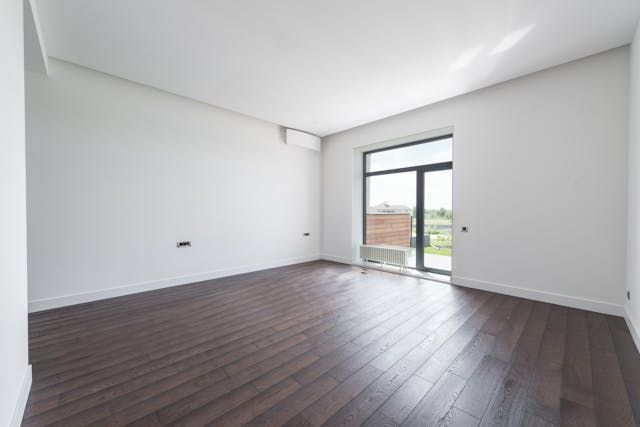EMOTIONAL SUPPORT ANIMALS - 7/17/2021
July 17, 2021

Last year, the Department of Transportation (DOT) announced it was going to start cracking down on emotional support animals and put forth its proposed new rules in response to air travelers that misrepresent their pets as service animals. Many air travelers were dishonestly stating that their pets were emotional support animals to avoid fees they would otherwise have been required to pay to have their pets accompany them while flying. There had been numerous instances of these “emotional support” animals urinating and defecating in airport terminals and in the cabin. Airline workers and passengers had also been bitten or injured by “Emotional Support” animals. The DOT sought to alter the definition of “service animal” to a dog that has been specially trained to perform tasks aimed at assisting a person with a disability and put some teeth into the penalties for those that make false claims about their animal.
Unfortunately, the U.S Department of Housing and Urban Development (HUD) appears to be softening its rules with respect to animals that individuals claim to be support or assistance animals. Renters with pets will often claim that their animal is a support or assistance animal to avoid paying pet deposits. Under the Fair Housing Act, housing providers are prohibited from charging animal deposits for service, support, or assistance animals and must allow all breeds of dogs. This is referred to as making a reasonable accommodation under the Fair Housing Act. When we receive applications from prospective renters, a very small percentage of them state they have an animal or that they plan to acquire one. We routinely discover unauthorized animals while performing periodic inspections or maintenance on properties. Once an animal is discovered, renters will often claim that their animal is a support or assistance animal to avoid unauthorized pet fees or paying an animal deposit.
HUD’s most recent guidance relating to a person making a request to have an animal as a reasonable accommodation states, “A resident may request a reasonable accommodation either before or after acquiring the assistance animal. An accommodation also may be requested after a housing provider seeks to terminate the resident’s lease or tenancy because of the animal’s presence, although such timing may create an inference against good faith on the person seeking a reasonable accommodation. However, under the Fair Housing Act, the housing provider must consider the reasonable accommodation request even if the resident made the request after bringing the animal into the housing.” Further, the request for a reasonable accommodation may be oral or written and can be made by others on behalf of the individual, like another person legally residing in the property or an authorized representative.
My takeaway from HUD’s position is that housing providers should consider going easy on residents that falsely claim to have no animals on their application and subsequently bring animals into a property in violation of their lease contract. Landlords can successfully evict a renter that has brought an unauthorized animal into the property, but if the renter claims his or her rights have been violated under the Fair Housing Act, a court victory will be enormously expensive.
“All animals are equal, but some animals are more equal than others.”- George Orwell
David Gerke
Broker

As rental laws and regulations continue to evolve, maintaining compliance is crucial for operating a well-managed and successful rental business. Professional property managers assist property owners in adapting to these changes efficiently by managing legal requirements and streamlining operations. Their expertise ensures properties remain compliant while providing owners with a seamless experience and allowing them to focus on their investments with confidence. Below are key ways property managers help owners navigate regulatory changes: Staying Updated on Legal Changes Housing regulations frequently change, impacting rental policies, tenant rights, and compliance requirements. Property managers stay informed about local, state, and federal regulations, ensuring that the owners remain aware of any modifications affecting their rental properties. Updating Lease Agreements for Compliance Lease agreements must reflect the current legal requirements to protect both owners and tenants. Property managers regularly review and update lease terms as regulations change, incorporating necessary clauses to maintain legal compliance. This proactive approach helps prevent disputes and keeps rental agreements compliant with the latest housing laws. Ensuring Fair Housing Compliance Fair housing laws prohibit discrimination based on race, gender, disability, and other protected factors. Property managers ensure that rental practices fully comply with these regulations, helping owners avoid legal issues while promoting equal housing opportunities. Managing Safety and Building Code Requirements Compliance with safety regulations and building codes is essential for maintaining habitable living conditions. Property managers oversee property maintenance, schedule necessary upgrades, and ensure adherence to fire codes, structural standards, and other safety requirements. They also coordinate repairs and inspections to meet legal standards and create a safe environment for tenants. Coordinating Property Inspections and Certifications Many jurisdictions require regular inspections and certifications for rental properties. Property managers handle scheduling and oversight of these inspections, ensuring that rental units meet health, safety, and occupancy standards. Managing Security Deposit Regulations Security deposits are subject to legal requirements regarding collection, storage, and refund procedures. Property managers ensure that deposits are handled in accordance with the law, documenting deductions properly and returning funds within the required timeframe. Handling Documentation and Reporting Requirements Accurate record-keeping is essential for regulatory compliance. Property managers maintain detailed records of lease agreements, maintenance reports, tenant communications, and financial transactions. They also manage required filings with local authorities, ensuring all documentation is up to date and readily accessible when needed. By leveraging their expertise, property managers help owners navigate complex regulatory landscapes, minimize legal risks, and maintain successful rental operations. For more information about property management services in Killeen, TX, visit Hunter Rentals & Sales at 3207 E Stan Schlueter Lp, Killeen, TX 76542, United States, or call (254) 634-3311.
Self-managing a rental property may initially seem cost-effective and straightforward, but it often comes with unforeseen challenges and expenses that can add up over time. From legal responsibilities to ongoing maintenance, property owners must handle multiple aspects of management that require both time and expertise. Understanding these hidden costs is crucial for making informed financial decisions and ensuring long-term profitability. Below are the key hidden costs property owners should consider when self-managing a rental property : Significant Time Commitment Effectively managing a rental property demands a substantial time investment. Tasks such as responding to tenant inquiries, coordinating maintenance, drafting and reviewing lease agreements, and handling daily operations require constant attention. For owners with full-time careers or personal commitments, this time burden can take away from other important responsibilities. Legal Compliance Risks Navigating local, state, and federal housing laws is a critical yet complex aspect of rental property management. Owners must comply with fair housing regulations, lease requirements, eviction procedures, and safety codes. Failure to adhere to these legal obligations can result in costly fines, penalties, or potential lawsuits. Professional property managers stay updated on regulatory changes, reducing the risk of legal missteps. Tenant Screening Challenges Securing responsible tenants is essential for maintaining steady rental income and minimizing risks. Conducting thorough background checks, credit evaluations, and rental history verifications requires access to professional screening tools, which often come at a cost. Without proper screening, property owners may inadvertently lease to tenants who default on payments, cause property damage, or violate lease terms. Higher Maintenance and Repair Costs Coordinating property maintenance can be costly, especially for self-managing owners who lack established vendor relationships. Professional property managers often have preferred vendor networks that offer negotiated rates for repairs and maintenance. Without these connections, owners may end up paying premium rates for services. Additionally, handling emergency maintenance issues can be stressful and time-consuming, particularly for those unfamiliar with property upkeep. Extended Vacancy Periods When a rental property becomes vacant, finding new tenants is important to maintain cash flow. Self-managing property owners may struggle with effective marketing strategies or lack access to platforms that attract high-quality tenants. As a result, properties may remain vacant for extended periods, leading to lost rental income. Accounting and Financial Oversight Accurate financial management is crucial for tracking rental income, security deposits, and property-related expenses. Mistakes in bookkeeping can lead to tax complications, financial losses, or audit issues. For property owners unfamiliar with financial management practices, maintaining accurate documentation may involve additional time and resources. Eviction Complexities Handling evictions is a legally intricate process that requires strict adherence to local laws and court procedures. Missteps in eviction filings or notices can lead to delays, additional legal fees, and lost rental income. Property managers have the experience and legal knowledge to handle evictions efficiently, minimizing financial and operational disruptions. Property Deterioration and Deferred Maintenance Regular property inspections are essential to identify and address maintenance issues before they escalate. Without proactive management, small problems—such as leaks, pest infestations, or HVAC inefficiencies—can turn into major repair expenses. Poorly maintained properties not only lose value over time but also become less attractive to prospective tenants. While self-managing a rental property may seem cost-effective on the surface, the hidden expenses and time commitments often outweigh the perceived savings. From legal compliance risks to costly maintenance and tenant-related challenges, the responsibilities of property management can be overwhelming. Partnering with a professional property manager can help mitigate these risks, enhance operational efficiency, and ultimately protect an owner’s investment while maximizing profitability. For more information on property management in Killeen, TX, visit Hunter Rentals & Sales at 3207 E Stan Schlueter Lp, Killeen, TX 76542, United States, or call (254) 634-3311.






